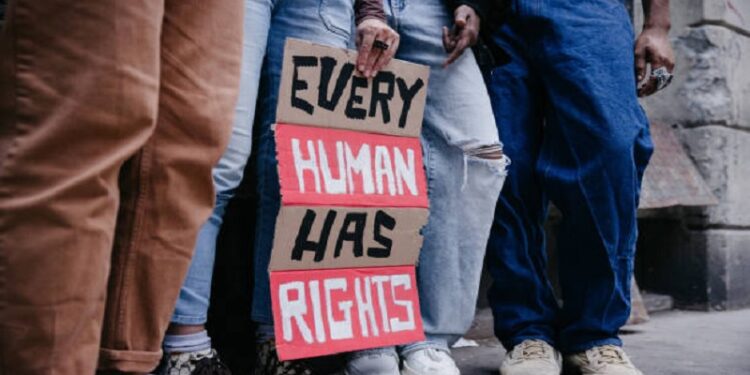By Ragheema Mclean
Last week, South Africa commemorated Human Rights Day, reflecting on the progress made in the 30 years since the dawn of democracy.
This day, which honors the 1960 Sharpeville massacre, serves as a poignant reminder of the sacrifices made in the struggle for freedom and equality.
With this year’s theme being “Three Decades of Respect for and Promotion of Human Rights,” VOC News spoke to several activists to gain insight into both the highlights and challenges of South Africa’s human rights journey since 1994.
Equal Education General Secretary Noncedo Madubedube expressed the sentiment among young people in organized movements, stating, “We’ve been reflecting a lot as young people in organized movements around what Human Rights means to us in 2024.”
“When we’re thinking about Human Rights Day all together, we aren’t necessarily thinking about celebrations, we’re thinking about how we lend support to the big actions of solidarity for Palestine across the country, we’re thinking about the experience of young girls and their safety issues. The human right of safety and security in our school communities.”
Madubedube highlighted the upcoming elections as a pivotal moment that could either disrupt or grow a strong, critical political culture in South Africa.
Meanwhile, Chairperson of the Wynberg East Civic Association, Yunus Karriem, acknowledged that despite challenges, there are some highlights in South Africa’s human rights journey since 1994.
He emphasized the right to religious freedom and freedom of expression as key rights that the Muslim community, despite being a minority, can practice freely.
Karriem also noted the ongoing challenges South Africa faces, including access to necessities like clean water, good education, and medical facilities.
“That’s really been a challenge to ensure equal service delivery and equal basic human rights for all.”
“A lot of the focus should be on advancing educating for everyone and focusing on how to advance our entrepreneurial efforts in our country.”
Gloria Veale, a member of the Women’s Voice Revival Movement, highlighted the country’s state of crime and corruption as a reflection of its human rights situation.
She expressed, “It’s a state that doesn’t change. I look today at our right to be alive is being attacked,” pointing to issues such as poverty, gender-based violence, and inadequate access to food and water.”
“What is there to celebrate 30 years later when we are still battling and facing all these challenges.”
VOC News
Photo: Pexels






 WhatsApp us
WhatsApp us 

